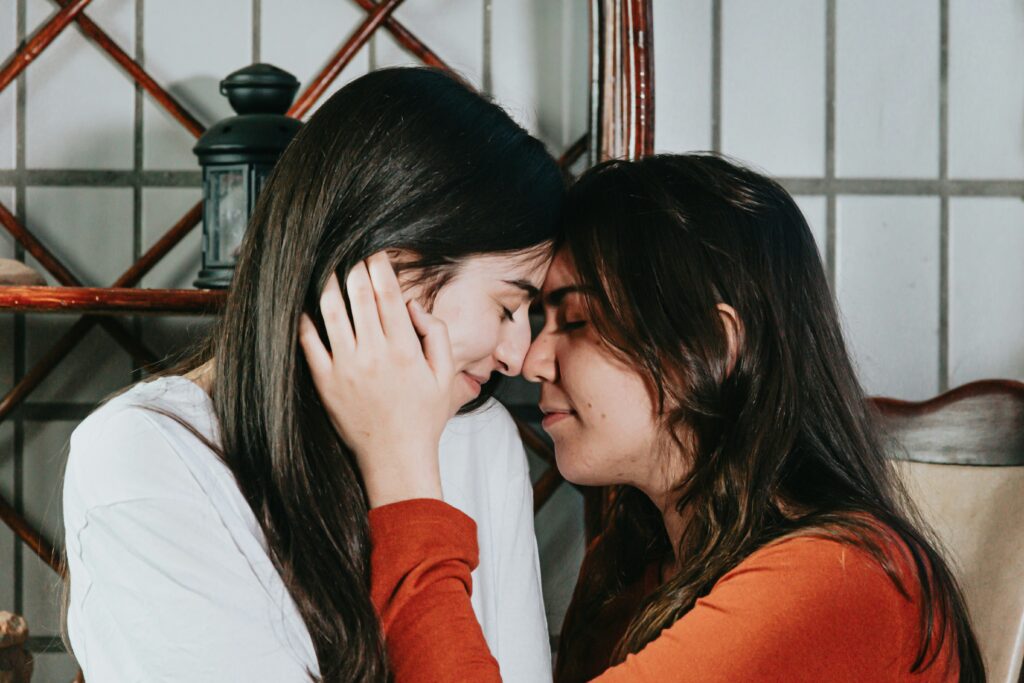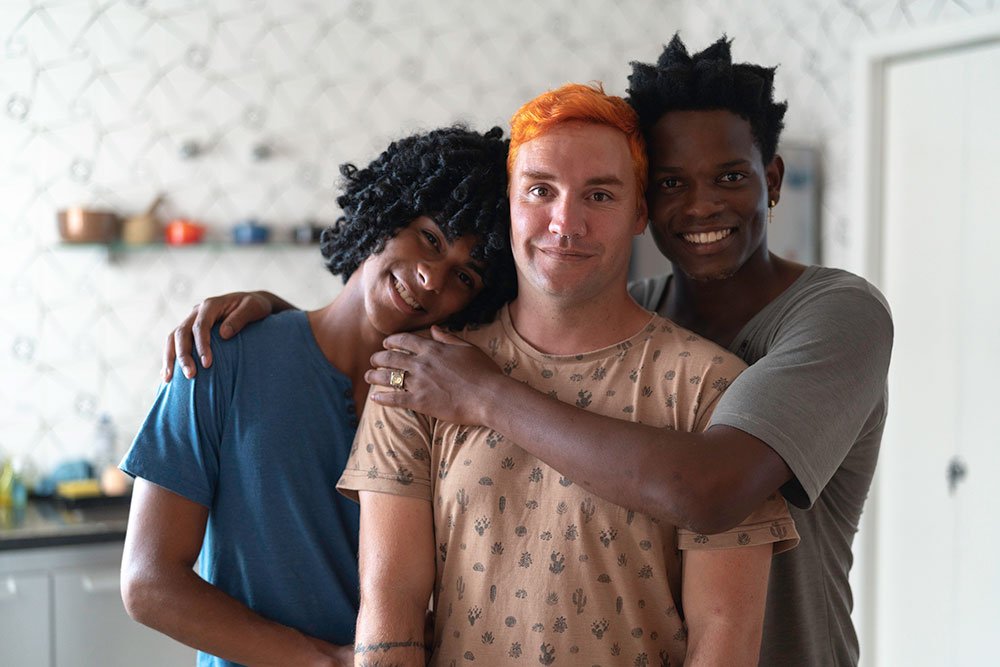Open relationships are the new sandbox where many LGBTQIA+ persons test out their relational skills. Can we explore new relationships and not violate one another’s boundaries? Will our health,our sex and our emotional intimacy thrive because of open relationships, or will they become tattered by pain and rejection over time?
Many of us wonder if we can trust our lovers to the powers and pulls of an open relationship, while others crave for another outlet for their love and experiences that keep a sense of youthful joy alive. No matter the context from which you consider the idea of opening your relationship, I recommend you take time to read through this 3-part series.
What is an Open Relationship?
An open relationship is a committed partnership in which both individuals consent to engaging in romantic or sexual relationships with people outside of the primary couple. Exploring Open Relationships vs. Monogamy! Curious about polyamory? Check out our detailed guide.
The key factors that differentiate ethical non-monogamy from cheating or infidelity are honesty, communication, and the full approval of all involved partners. Boundaries and terms of the open relationship are negotiated transparently.
There are many varieties of open relationships, with flexibility to structure agreements around each couple’s comfort level. Some common examples include:
- Only recreational threesomes together, but no independent external partners
- Casual dating and sexual encounters are allowed, but not ongoing secondary relationships
- Full permission for additional long-term romantic partnerships
The exact parameters are up to each couple to decide through respectful discussion and compromise. There is no single “right” way to practice consensual or ethical non-monogamy.

Do you need help learning about relational esteem and inherent value? We’re here to help.
The Prevalence of Open Relationships Among Gay Men
Research indicates that open relationships are fairly common among gay male couples. Studies show that around 40-50% of gay couples engage in some form of consensual non-monogamy. This contrasts with rates of just 4-5% for heterosexual and lesbian couples.
These statistics highlight that traditional monogamy is not universally considered the ideal relationship structure among gay men. Open relationships, sometimes called “monogamish” arrangements, can take many forms based on each couple’s wishes. Understanding the range of options can help couples determine if some type of open relationship could work for them.
Facing Social Stigma Around Non-Traditional Relationships
Despite their prevalence, open relationships still face stigma and judgment, even within the LGBTQ+ community. Many gay couples report feeling pressure from family and friends to conform to traditional monogamous expectations.
This can lead to feelings of shame or guilt, and cause couples to hide their open status from unaccepting loved ones. Having to “return to the closet” and hide an important aspect of their relationship can take a psychological toll.
It’s important for couples to anticipate these potential challenges. Finding community support among other ethically non-monogamous couples can help counteract negative societal messages.
Managing Difficult Emotions in Open Relationships
Opening up a relationship often brings up difficult emotions like jealousy, insecurity, anxiety and fear of abandonment. These feelings are completely normal, but failing to address them can sabotage the open arrangement.
Partners should listen without judgment when the other(s) expresses vulnerabilities. Sharing fears and insecurities openly can help diffuse their intensity. Establishing rules and boundaries around outside sexual contacts and emotional closeness can provide reassurance.
Seeking counseling from therapists experienced with open relationships can also help couples process challenging emotions and dynamics. The key is to acknowledge and compassionately discuss these feelings before they spiral out of control.

Establishing Clear Rules and Boundaries
To maintain stability and trust, open relationships require clear ground rules about what activities are permitted or prohibited. It’s crucial for partners to explicitly communicate and negotiate guidelines around:
- Safer sex practices
- Level of detail to disclose about external partners
- Overnight stays vs. only sexual meetups
- Emotional involvement with casual partners
- Which friends or acquaintances are off limits
- Scheduled quality time to nurture the primary partnership
Of course, these rules can evolve over time as partners adjust to the open dynamic. But starting with clearly defined expectations can minimize hurt feelings down the road.
Prioritizing Emotional Intimacy and Quality Time
Partners should intentionally nurture closeness and affection in their relationship, despite any outside sexual connections. This requires ongoing expressions of love, appreciation and commitment.
Regular one-on-one dates, without distractions, are important. Couples need quality time to check in emotionally, cuddle, maintain physical intimacy, discuss any issues, and reinforce their primary bond.
An open relationship can thrive only when anchored by a strong foundation of intimacy, friendship and trust between partners. Frequent emotional nourishment is essential.
Key Discussion Points for Opening Up Your Relationship
If you are considering transitioning to an open partnership, here are some important topics for couples to discuss:
- Level of disclosure about external partners and encounters
- Guidelines around safer sex and STI prevention
- What specific sexual acts are permitted or prohibited
- Expectations around emotional attachment and time spent with casual partners
- Rules about interacting with friends, coworkers, exes
- Scheduled quality time to focus on your primary relationship
- Managing jealousy and insecurities as they arise
- How often to review and revise agreements as needed
- Contingency plan if trying non-monogamy doesn’t work for the couple
Having candid conversations about needs, fears, and boundaries before opening up is key. Addressing potential issues proactively can prevent hurt feelings.

To get you started, here are three highly important questions to consider as you contemplate what will leave you truly satisfied:
1. Is your Relational Esteem High or Low?
Relational esteem is the barometer that reveals how much each of you knows, believes and trusts that nothing can deconstruct the relationship––not another person, a sexual rendezvous or a major disagreement.
High relational esteem squashes insecurities and feelings of being replaceable. It roots itself in an unshakeable confidence in the relationship’s longevity for each member of a relationship to realize their highest selves and to trust that they truly belong. High relational esteem knows––relying on every experience of affirmation and belonging––nothing can tear the relationship apart.
When we have a high level of emotional intimacy, our relational esteem will be high. And from these heights a couple’s ability to open their relationship will emerge from a sense of excitement, not dread, fear or jealousy.
When our relational esteem is low we fear rejection and breakups. We panic easily because we are accustomed to thinking our partner might fall in love with someone else or become bored with us. Low relational esteem has a scary message: I am replaceable. Low relational esteem fears the ongoing effects of an argument and will often flutter with doom that the relationship might end, even when the end isn’t realistic. Recurring thoughts of inadequacy prevent us from having high relational esteem, just as watering soil with salt water won’t allow plants to grow.
Low relational esteem is directly tied to not believing in your own inherent value, either because you cannot acknowledge that you are loveable or because your partner (among other people in your life) has failed to provide convincing evidence that you are cherished and belong in loving arms. If you are like me in my late 20’s, you may feel a little bit of both—not believing in yourself and not having the data of your worth staring you in the face.
We improve our relational esteem by learning to trust our partner with the honest reality of who we are—our insecurities, our wounds, and our success and joy. Relational esteem arises as we let another see us for who we are, and they stick around for both the good and the ugly. Sometimes we might need to ask our partner to be more intentional to affirm our role and worth. Asking is ok! Many partners are way too unaccustomed to expressing their love. In these instances, we have to prime the affirmation pump by communicating our needs.
Do you need help learning about relational esteem and inherent value? We’re here to help.

2. Do you frequently communicate about sex, belonging, and security?
Although many couples who think about opening their relationship communicate about logistics well—who, what, when—, I want to encourage couples to communicate about their fears, their sexual desires, and the mechanisms that stabilize their relational esteem.
Communicating about what feels good and what doesn’t, whether it be emotionally, relationally, or sexually, will help any couple navigate open relationships with more awareness. Learning about what scares or calms, excites or exhausts and fulfills or depletes your partner will help you choose actions and identify a third that improves your relational esteem, rather than diminishes it.
One of the most important things about an open relationship is that you are honest with yourself so that you can be honest with your partner(s). Know what you like, what works for you and that which doesn’t. Help your partner(s) understand who you are what you need. From this place you can confidently co-direct your relationship to a place of confidence, comfort, and peace.
When we have a peaceful and honest relationship with our own desires we will have a peaceful relationship with our behaviors. And when our behaviors are in alignment with our desires we protect ourselves from pain and our relationships from our own resentment. Talking about what you like and what you don’t goes way below the sheets and into the fabric of who you. From this place, your desire can help you create the love life and relationship you most deeply brave.
While open relationships can take a variety of shapes and sizes, remember that you are not an island functioning in isolation. Your actions will still affect your partner(s). Communication will help keep your relationship(s) on track an in line with your co-determined relational trajectory. Opening a relationship does introduce a higher level of autonomy, but it also requires working as a team, possibly even more so than before.
3. Is your boundary system sophisticated and functional?
Good communication leads to a sophisticated boundary system that allows all people involved to feel safe, seen, secure and soothed.
By boundaries, I mean not only permitted or prohibited sexual experiences but also emotional experiences.
Couples who open their relationships should clearly understand what role another partner or a third will play. Is the open relationship about exciting sexual encounters or finding love? Does it involve one partner or many? How much do each of you talk about? What details are disclosed or kept private?
Questions like this will be important to leave on the table. Answers may not be present immediately, and many couples will have to find the answers as they navigate the open world. But boundaries will help protect the relationship and will bring a sense of safety so that all partners know their place and hold realistic expectations.
Open relationships are a major topic to consider. Living in an open relationship requires a type of unconditional love that can tolerate paradox, one that loves when a partner falls in love. Relational esteem can carry an open relationship through many challenges and to places where mature love knows no limits.
Remember, an open relationship doesn’t necessarily mean more joy and more satisfaction. Know yourself and take care of yourself as you plot your steps.
Ready for a change for you or a loved one? Schedule your Free 15 Minute Consultation today.


